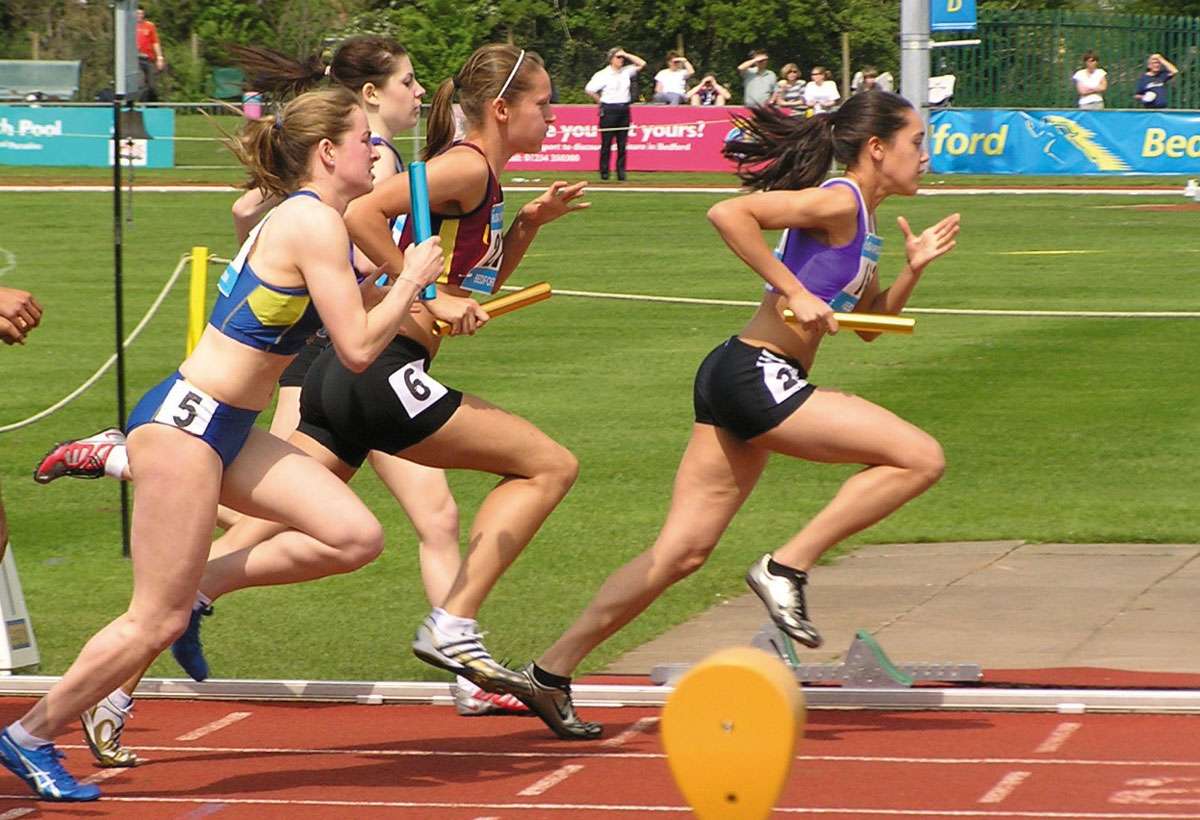
I’m not a Cranleigh girl, I was born in East London ‘within the sound of Bow bells’ which considering my ‘Surrey’ accent is a bit ridiculous. I lived there all my life until I finished university and it was my husband’s job that brought us to live locally, near Cranleigh.
My father was a country boy from Staffordshire and my mother a ‘townie’ from Barrow in Furnace. They relocated to London because of their jobs.
I went to Godstowe Preparatory Boarding School when I was 8 years old, then on to The Cheltenham Ladies’ College, where I enjoyed the best fun ever! I loved the freedom of boarding school and the variety of activities on offer. It was great being out and about and active all the time. My chosen activities were mainly art and sport based, though I remember when we were 10, we had our own little garden, our own ‘patch’ to tend, just ‘free range’ which was really nice. Being an international school, I also got to hear about far away places and strange animals from girls from across the globe, from Orangutans to Kinkajous and Slow Lorises.
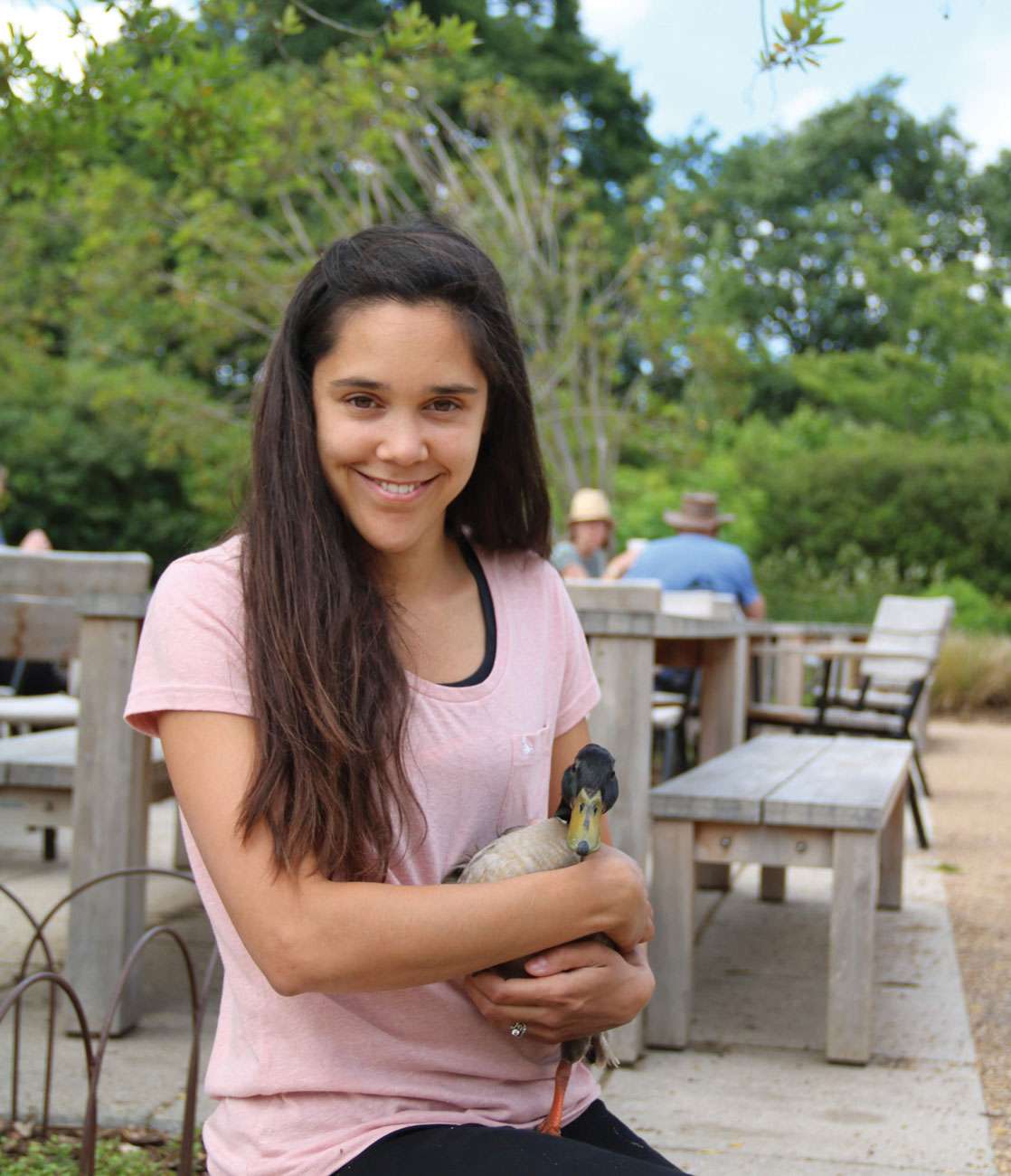
The only downside I experienced of boarding school was when I returned home I didn’t have any friends around in holiday time because I didn’t go to the local school, so it could be a bit lonely as an only child. I was the only girl who ever cried at the end of term.
The subjects I excelled at were all the sciences – biology especially. I loved biology because we had some awesome teachers who made it good fun, and I loved learning about how the natural world worked. I wasn’t good at anything writing-related like English and History.
From the sport point of view, I did a lot of athletics and ended up running for Great Britain. I went to the European Junior Championships in Lithuania and took part in some home Internationals as well. I was a sprinter, the 400m and 4 x 400m relay. Our relay squad placed 5th in the Final.

At the agricultural show-showing a goat in 2003
My first GB vest came at the same time as studying for my A levels, so that was a pretty stressful year. On reflection I think doing them together meant I excelled at both. If I’d only had one thing to focus on there would have been time to kill, and I’d have wasted my free time. I’m the type of person where if I’m busy, I get stuff done and feel more productive. I’m lazy when I have time on my hands.
My teachers told my parents I would have to give up athletics if I seriously wanted to study veterinary science and that was enough motivation for me! I’d always wanted to be a vet. I’d wanted to help animals since I was very young.
My mother’s not animal-minded in the slightest. She never had pets. I asked her recently why she wasn’t interested in animals and she admitted, “It’s because I never had them around me but I wanted you to have them and be exposed to them”. As I grew up and understood more about animal welfare and where our food comes from, my parents’ interest increased with me. It was never the case of ‘Let’s take her to the zoo’, more like ‘Let’s take her to the farm’!

Pigs, my favourite animals on a farm visit
We were allowed to take pets to boarding school and I had guinea pigs as my first pets. I don’t quite remember how this came about but during one half-term break I had to take some stick insects home and after that I turned into a stick insect fanatic. I used to drag my dad to phasmid study groups at the Natural History Museum on a regular basis. My poor dad having to sit through that! I even made him wear the T-Shirt!
Every year from when I was tiny, we’d go to the Royal Welsh Agricultural Show and suddenly one year, when I was 9, to my delight my dad announced ‘Let’s get some chickens’. They were my pride and joy! One Christmas we built a giant snow-castle for them and put Napoleon the cockerel on top as chief. We called him “Nappy” for short. I used to sit down in the coop and they would flutter onto my head, shoulders and arms, often leaving little unwanted gifts behind. We hatched chicks in our home incubator and they would keep me up all night cheeping under their little infra-red light, but I loved them.
I had an interest in ALL animals, particularly wildlife. We would often go pond-dipping for newts and frogs. Once we caught a frog and my Dad let me keep it in a bucket to observe it for a while. Dad had popped a stone into the bucket but chastised me when he realised I’d removed the stone, ‘What will the frog sit on?’ he said. The poor frog couldn’t keep swimming forever and Dad explained I could’ve almost killed it. My parents always taught me to care for animals and give them what they needed, to be gentle with them. They gave me the awareness that animals are not here just to amuse us, they have their own ways and their own habitat where they live and thrive. We’ve got to keep them in their ideal environment by putting them back afterwards.
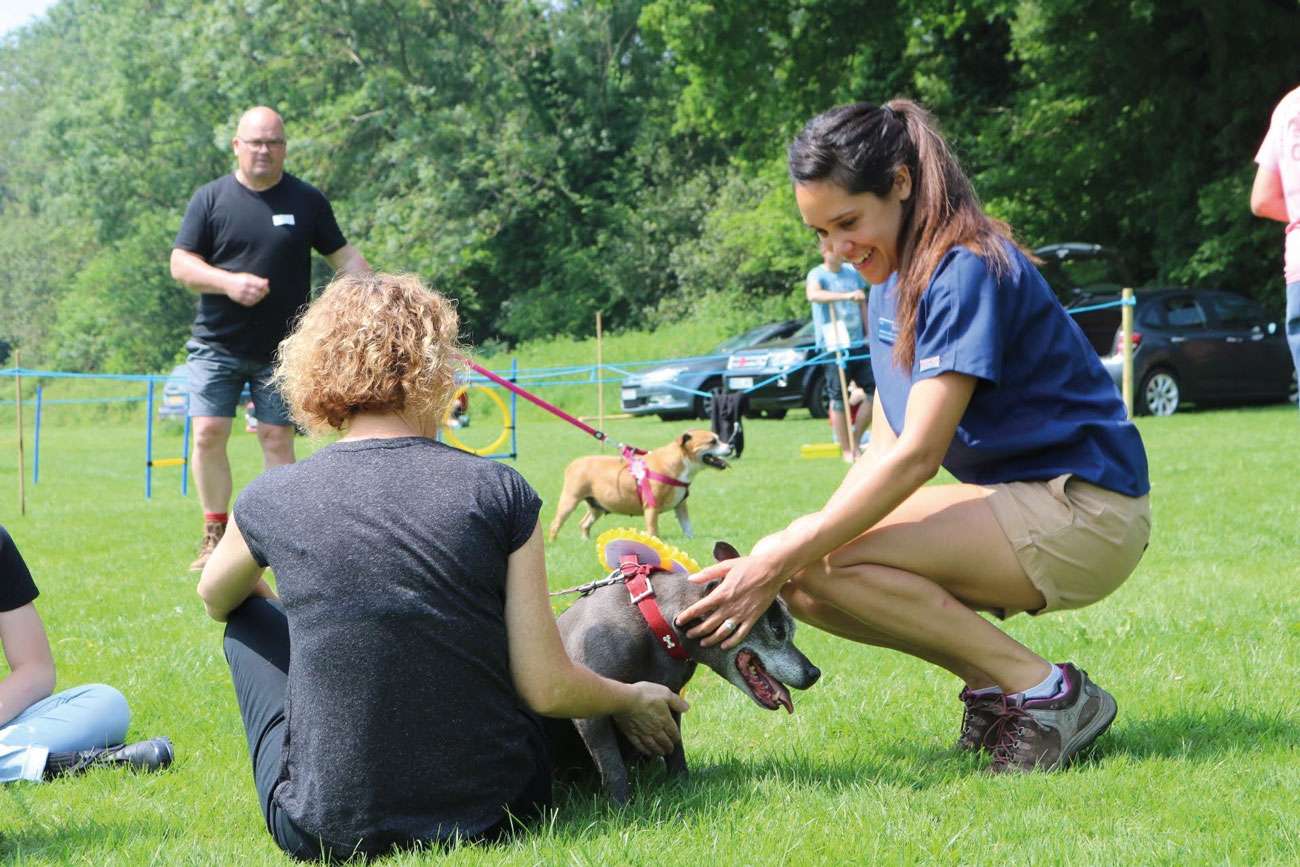
Judging at the Chilworth Dog Show 2018
When I was little, like a lot of children, I just wanted to cuddle and cosset any animals I came across. As a teenager my passion developed into being interested in food, sustainability and where our food comes from. This in turn awakened the desire to take care of our food animals and keep them happy and healthy before we eat them. They deserve the best life possible. This ‘journey’ led to me wanting to become a food vet.
A food vet’s role is to look after production animals, ensuring their health and welfare is maintained. It is a really important job. Food-producing animals deserve our attention as much as any other animal. People really care about their dogs and cats but forget about livestock like the cows. I wanted to be one of those people who made sure they were happy too. I think it was going to the agricultural shows with my parents that flicked a switch in my mind.
By the time I was 18 my mind was focused on being a vet. The only other pressure that could have influenced this decision was my athletics training and competing. When my teachers said I’d never make it as a vet, that was all it took. I announced, “I’ll show you.”
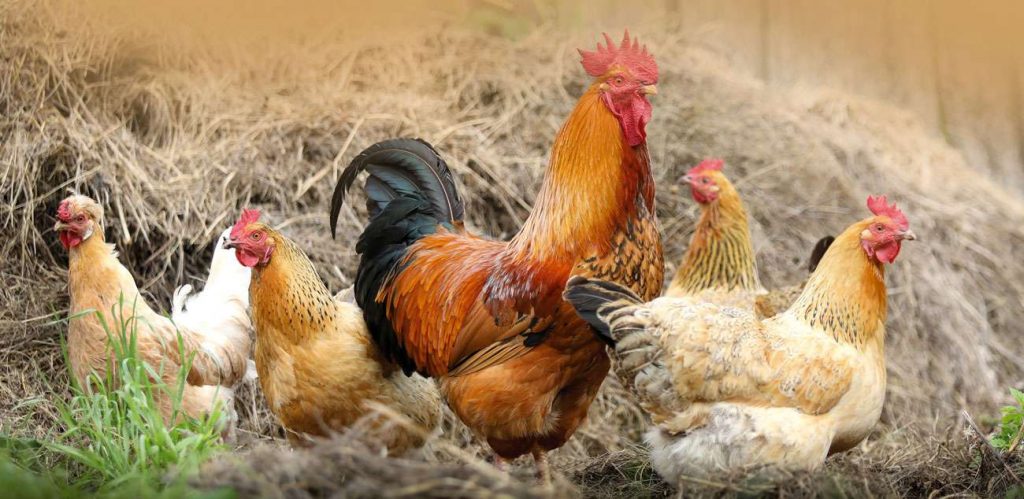
From that point I’ve never looked back, and even though I was keen to pursue athletics, it was always – ‘pursue being a vet as a career, follow athletics as a hobby’. I’m not deluded, it’s one thing training to be a vet and another thing to make enough money out of it to also be an athlete. I could make pocket money out of competing , but I knew I could never earn a salary. So I always kept it to one side and eventually because of my veterinary studies, I had to give up competing all together, although I am still an athletics coach.
Vet school was really hard work, but good fun too, and I met some life-long friends there. Hospital rotations were exhausting but we had some great laughs together. Once, we led a large male Alpaca with mange into the small animal hospital for a medicated bath. The nurses were horrified! My best friend and I once discussed rectalling cows when we were in Tesco’s at the till, then realised the cashier was looking at us so oddly.
Unfortunately, when the time came to graduate, I wasn’t confident about farm work so I didn’t pursue being a farm vet initially. I came to work at Brookmead Vets which suited me well, because their practice was 90% small animals and 10% farm work; equine at the time. It was my husband’s job that brought me here, though he was only my boyfriend at the time. He’s a physiotherapist (we’ve got quite the ‘combo’ going on!) and worked as a GB physio when I was doing athletics. He was already working in Surrey. My parents had retired and moved to France so I decided to come down here to Cranleigh from East London.
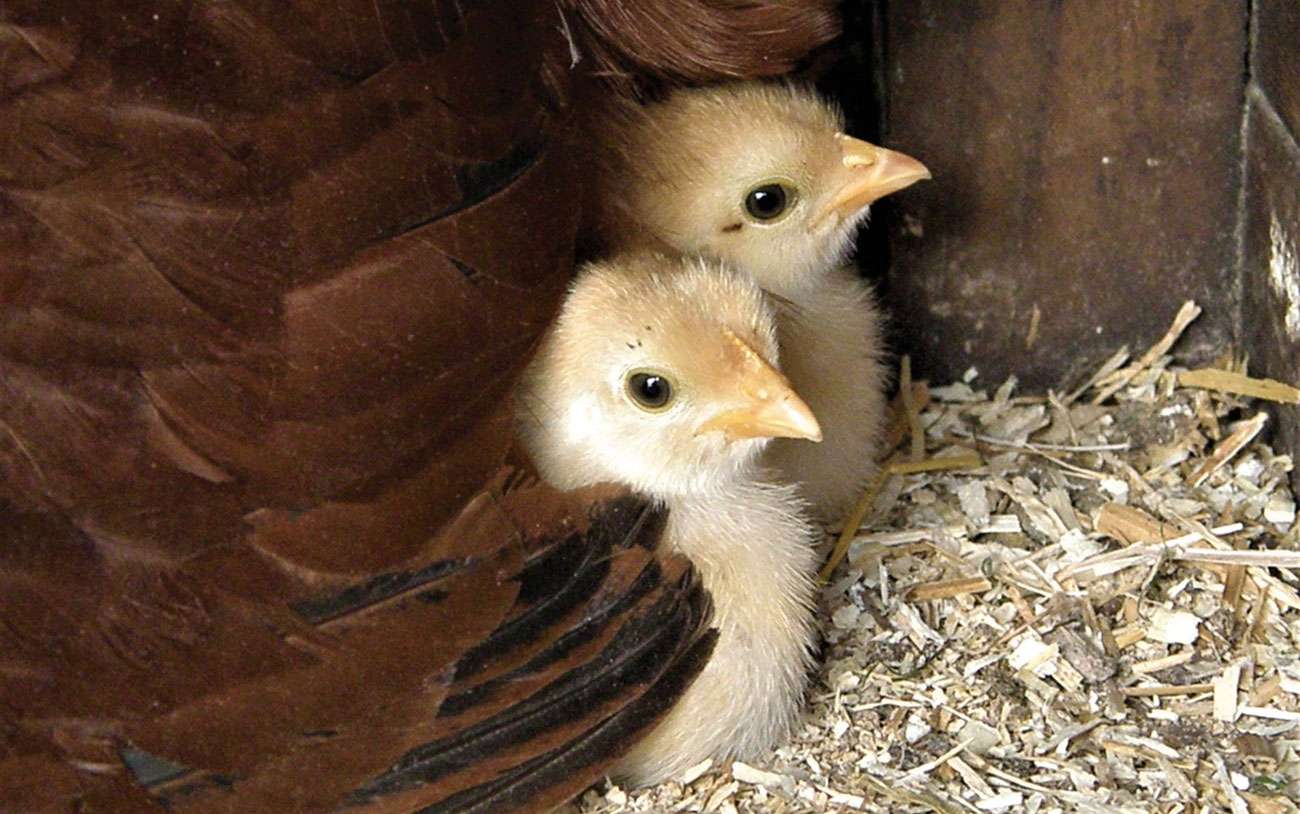
My Aunt’s chickens
After two years of living and working in Cranleigh, meeting the most wonderful people and their animals, I started itching to get back to agriculture. I began a Diploma in Veterinary Epidemiology and Public Health which is all about disease prevention and protecting our food chain. Then I saw an advertisement for a Poultry internship and thought, “You know what, I LOVE chickens and I’ve never been on a chicken farm or learnt much about it, I’m moving to Lincolnshire and train to become a chicken vet!” My husband was more than a little surprised and it was quite a challenge living apart for so long, but it was well worth it. I don’t regret leaving traditional practice in the slightest, but I have some fond memories of it. I mean, how many jobs mean you get to tell an owner their pet was being over amorous? Or end up taking home an apparently “ugly” little terrier to foster (I personally thought he was beautiful and fell in love with him), who stole the duck fat at my parents house then vomited under their Christmas tree. My mother was not amused! I’ve been bitten (more like gummed) by a toothless pug while cutting its nails, and spent many an hour laughing over terrible testicle jokes with the nurses whilst performing castrations (sorry gents).
Being a poultry vet is tremendously varied work, no two days are the same. I wasn’t completely satisfied as a small animal vet, I didn’t feel I was making enough of an impact. On the other hand, as a food vet there’s opportunity to make a difference to large numbers of animals on just one visit. Working on the whole food chain, with businesses, farmers and animals – it’s just so varied and suits me better.
Having a job that means working with chickens is a bonus! I love the way a chicken hatches out of an egg and it’s just complete – a ‘mini chicken’! Having developed and hatched in an incubator it then knows instinctively where its food and water is, even without mum there. It’s the most amazing and surprising little species, self-sufficient and incredibly intelligent. They’re so sweet the way they all flock towards you when they’re tiny and all of a sudden you are surrounded by a sea of cheeping yellow.

Having a cuddle with a goat
I would love to have my own chickens. I think they make great pets. I’d love my son to learn the lessons I learnt from having animals, like patience and kindness. I can’t though because of my job. I can’t risk spreading disease to other people’s poultry, so I’ll have to leave that job to our rescue cat. I am passionate about nature as well as farming. I want to help protect the environment and ‘get back to nature’. I keep a large vegetable plot and have tried to make my garden more wildlife friendly. I love the idea of being more self-sufficient and giving back to nature, although it is hard work. I think nature can teach us important life lessons like ‘let it be’ and ‘don’t disturb things unless required’.
While it would be great for more of us to be self-sufficient, I doubt we all have the time in our lives. Animals and plants take a lot of time to look after. If we all went down the “good life” route, would animal welfare actually be better for the animals? It definitely wouldn’t be more sustainable. Free range and organic animals actually use up more resources than intensively farmed animals. At the end of the day we’ve just got to respect nature.
As a family, spending time outside together is important to us. We are so lucky to live within such beautiful countryside. We encourage our son to experience all the things nature has to offer, from fish-spotting to playing with leaves and stomping in puddles. There is no such thing as being too muddy in our house, much to my parents dismay when they visit from France and we drag them through the local muddy woods and streams. I think it’s so important that we appreciate what wonderful nature is on our own doorstep. Hedgehogs need our support, not only Tigers.
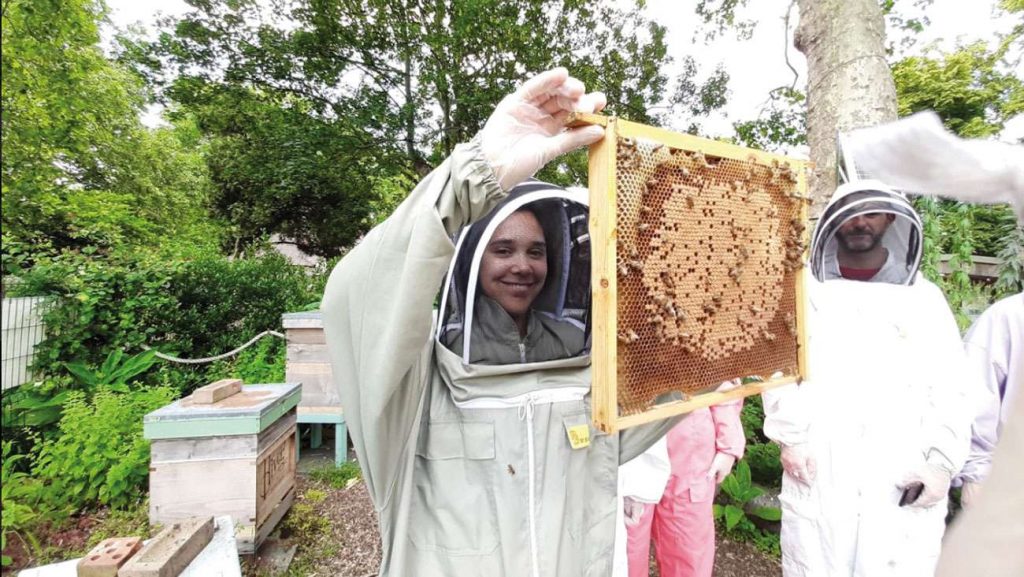
Learning how to keep bees
I think chickens are awesome to work with. The other day my toddler said “Mama fix chick-shens”. I was so proud. I’ve recently launched my own business as a pet/backyard poultry vet. I want to help people achieve healthy, happy birds and support my family. I am passionate about education, I believe it is so important. If we were all educated about the natural world we would probably treat it better. It’s sad that it’s so difficult to find experienced poultry vets, so as a lecturer at Surrey University I’m trying to change this. I teach all our vet students about poultry surgery and medicine, and even take them on field trips to practice our handling and examination techniques. Pet poultry deserve as much care and attention as any other pet, so I think it’s essential they play a significant part in our curriculum.
Sadly my husband is frightened of flapping birds, they are not his thing (I’m being hypocritical with my fear of spiders), but otherwise he shares my passion. He helps me in the garden and wants to keep bees one day, but meanwhile he has to be content with making solitary bee hives out of my prunings instead.
Looking after chickens as part of family life is great. They cause hours of amusement, give you fresh healthy eggs and teach good life lessons to children, but it’s essential to know what’s involved. A chicken can live 7-10 years, depending on the breed so it’s quite commitment. There are many local courses available on how to keep your chickens healthy and safe e.g. how to set up your coop, prevent fox attacks and what is the best food. Chickens are naturally a prey species, so they act more like rabbits than cats or dogs when they are ill. They are good at hiding illness, so predators don’t think they are easy targets, therefore as owners it is really important we spot illness early on for veterinary intervention to be successful. There’s lots of support answering the medical queries for dogs for example, but not so much for chickens. I’m going to run chicken health courses to help people understand more about how their birds work, and how to spot early signs of things going wrong. It doesn’t cost a lot to start up either, anyone who uses the internet can often buy a second hand chicken coup. It’s possible to find free chicken coups on the internet too, but it’s essential to remember to disinfect a secondhand one before use. At the other end of the spectrum, some new, large sized ones are available on the market for £1,000, so there’s many options to suit all.
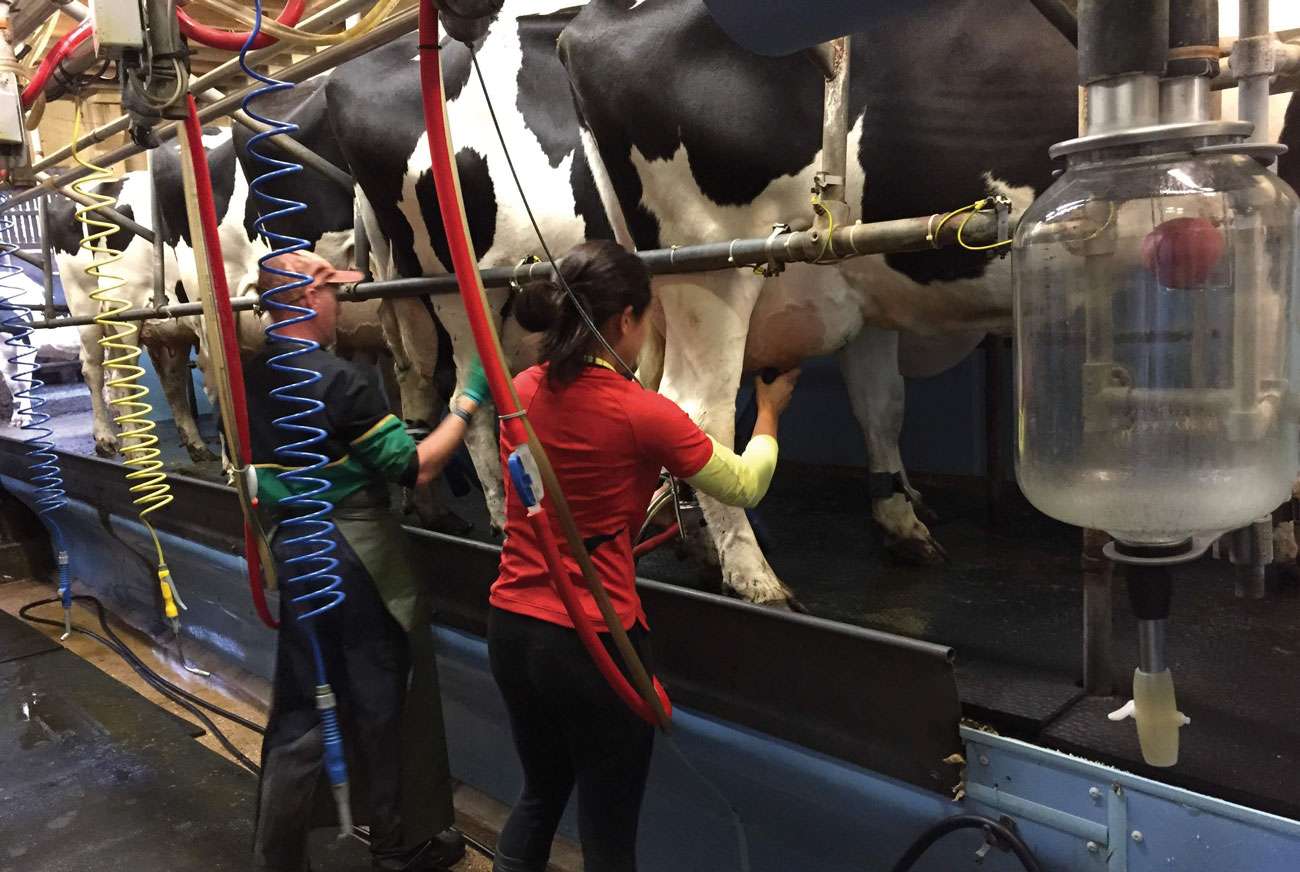
Milking the cows
When choosing the type of chicken there’s a wide range to choose from. Some are pedigree breeds costing about £30 each, or there are organisations like ‘Fresh Start for hens’ and the ‘British Hen Welfare Trust (BHWT)’ who re-home ex-commercial hens.
Their only cost is a minimum donation, or more if you’d like to give a gift. Laying pellets, oyster shell and grit are essential as they’ll be laying eggs and have to process a high amount of calcium to produce the egg shell, so feed high in calcium is the way to go. Without that they will break down their own bones to produce the eggs, which is definitely to be avoided. How self-sacrificing is that! I once fed my chickens a large quantity of watercress prunings. At first you’d think great, iron and calcium rich treats! But then a week later when I was back at boarding school my parents phoned me to say the strangest thing had happened. All their eggs had turned green. Not the shell itself, they were normal, but the yolk. When my mum cracked an egg into a pan it was a strange greeny yellow colour. She assumed it was off but then Dad noticed it smelt fine. (We do the smell test a lot at home. Ignoring the best before dates is a guilty challenge for us.) Anyway, they realised it was just pigmentation, the eggs were fine.
The daily time commitment to care for them is about 20 minutes. It’s good to pick them up, handle and inspect their condition on a daily basis. Obviously if you wish to spend more time you can. Then an additional hour each weekend would be required to clean their coop. Despite popular opinion, eggs should be kept in the fridge. They should also be kept as clean as possible, so ensure the nest box material is regularly refreshed. Never wash them, you only remove the protective waxy coating. Unlike pet birds, commercial birds are vaccinated against Salmonella, which is why ‘Lion Code’ stamped eggs are so safe nowadays.
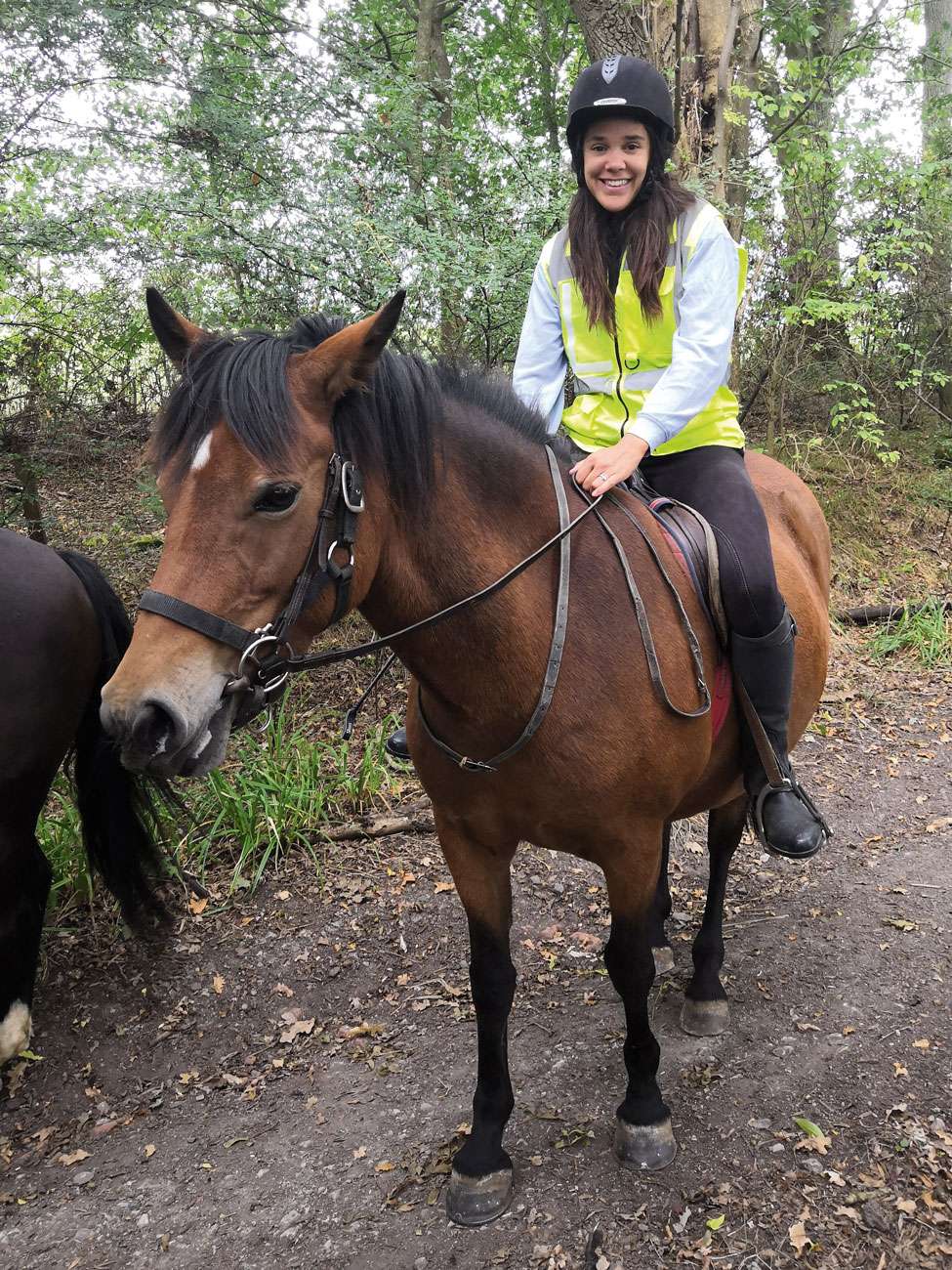
My favourite pony
Before you start out, I would highly recommend doing plenty of research. The library stocks lots of books about poultry husbandry. Ensure you have a large enough space for them and that you’re able to invest in the initial equipment, especially fox-proofing, as that may add to the cost and labour. It’s advisable to dig a trench and fill it with concrete to stop foxes from digging underneath any fencing.
Make sure you choose the right breed too, there’s no point having a flighty cockerel or one with large spurs if you have young children. Our first cockerel, Sargent, used to have a right go at us if we went into the garden, so we took to wearing a long black cloak and flapping it whenever he came near. He clearly showed more respect to giant birds than humans. I would highly recommend having a cockerel (if your neighbours can cope with it!). They interact so gentlemanly with the ladies, sharing the juiciest treats, shielding them from danger, checking out any potential threat first. They’re a model of chivalry. The less time you spend with chickens, the more feral they’ll become, so keep interacting with them. You can even train a chicken to do tricks.

Hide and Seek in the woods with my boy
The more you handle them, the friendlier they’ll be. People always look impressed when I say I’m a vet, but as a profession, vets are struggling at the moment. Findings have revealed high rates of dissatisfaction, caused by pay rates, long hours and stress. There are many mental health issues, it’s a big priority for us at the moment. The work-life balance is hard to deal with and the pay is not particularly good either compared to other jobs, so high numbers of vets are leaving the profession which is a very sad fact. My advice to any young person considering a veterinary career is to be very sure that you understand what your committing yourself to. A veterinary degree is not just about playing with animals all day. It is about supporting owners as well. It can open many unexpected avenues like being a chicken vet, working for a supermarket, drug company or the government and getting involved with animal welfare policies. The communication, problem solving and decision-making skills you learn are useful in so many other careers. It might be wise to view a veterinary degree and career as two separate things. Too many undergraduates aim to get a veterinary degree to be a vet, but then become sad and disillusioned afterwards. But there is no need to be, it can be a fantastic career.
I love being a vet, now I have found my niche. I know I am improving animals’ lives, which is what I always wanted. Go in with your eyes open, work hard, have a backup plan and consider other veterinary avenues too. You have to love animals and people. It’s a fine balance. I believe that animals aren’t luxuries so we should commit to looking after them first and foremost, and that’s what I plan to do.
For more information on poultry contact:
Henrietta Kodilinye Sims – Surrey Poultry Vet
E-mail:











